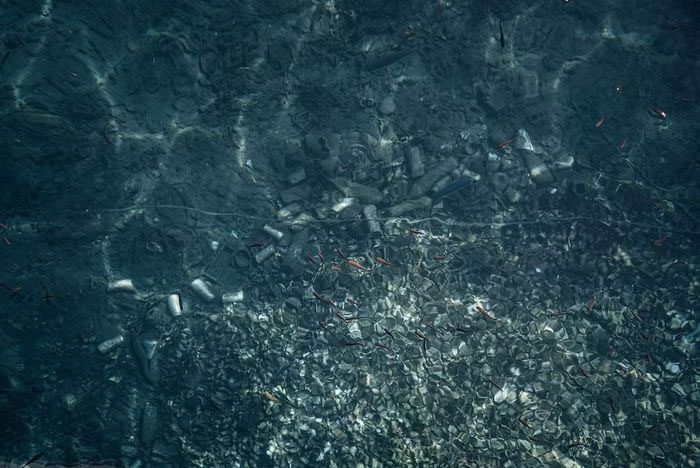The amount of plastic waste dumped into the world’s oceans has surged dramatically since 2005 and could increase nearly threefold by 2040 if the world does not take decisive action.
A study by the 5 Gyres Institute (USA) published on March 8 in the journal Plos One assesses trends in ocean plastic waste from 1979 to 2019, according to the Guardian.

Plastic waste in the sea off the coast of Kithnos, Greece in July 2022. (Photo: Washington Post).
The research was conducted based on surface plastic pollution data from 11,777 monitoring stations across six major ocean regions.
Researchers indicate that the plastic waste pollution in the oceans originates from the non-recyclable or poorly designed plastic manufacturing industry.
Dr. Marcus Eriksen, co-founder of the 5 Gyres Institute, stated that the exponential increase of microplastics in the oceans is a clear warning that humanity must act immediately on a global scale. He urged companies to take responsibility for the current pollution situation.
“Cleaning up is futile if we continue to produce plastic at the current rate. We have heard too much about recycling while the plastic industry refuses to buy recyclable materials or design for recyclability. It is time to address the plastic issue at its source,” Eriksen said.
Microplastics are particularly dangerous to the oceans. They not only contaminate water sources but also destroy the internal organs of marine animals if ingested accidentally.
Many scientists have called on governments to act to prevent the worsening of this pervasive pollution.
“We know that the ocean is a vital ecosystem and we have solutions to prevent plastic pollution. However, plastic pollution continues to rise and poses dangerous impacts on marine life. There must be laws to restrict the production and sale of single-use plastics,” said Edward J Carpenter, Ph.D., from the Estuary and Ocean Science Center at San Francisco State University.
In November 2022, the United Nations launched negotiations in Uruguay aimed at finding a common solution to address the issue of plastic waste pollution. On March 5, countries approved the text of the first international treaty aimed at protecting the oceans.
Researchers noted that the international agreement on plastics is fragmented, ineffective, and lacks specific targets. They called for global accountability for plastic manufacturing companies and the need for legal obligations to address the entire lifecycle of plastics.


















































